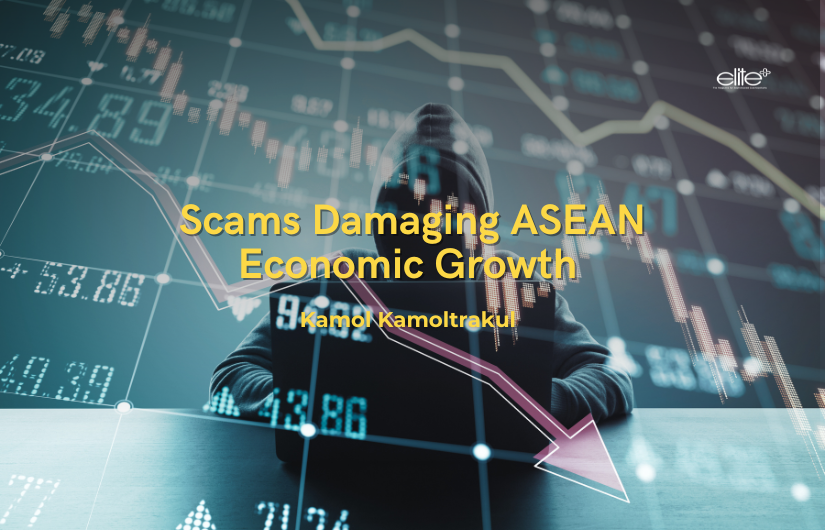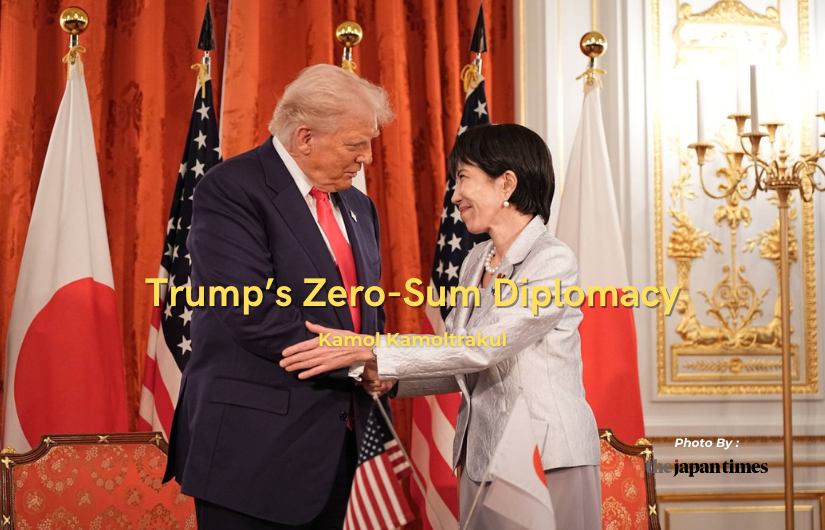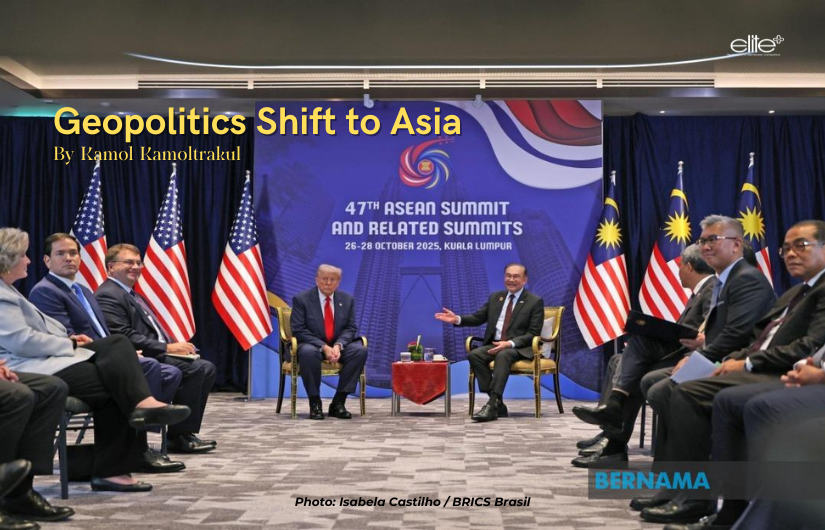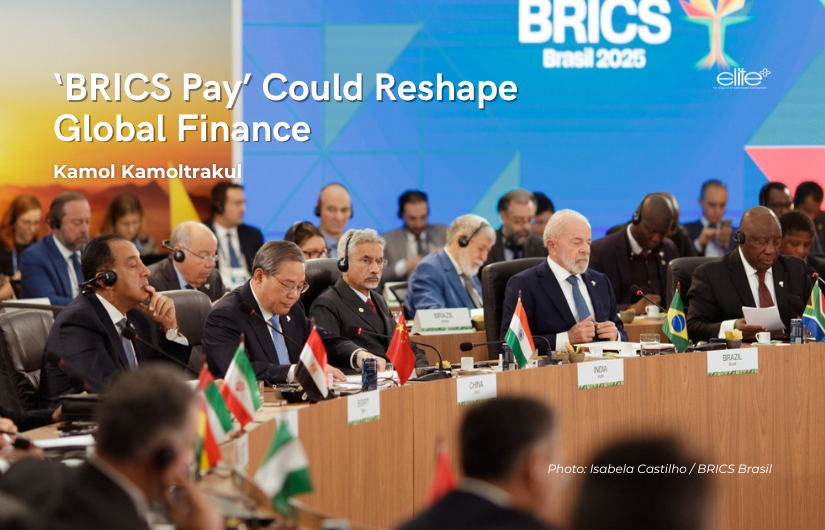Trade War Tensions Continue to Rise
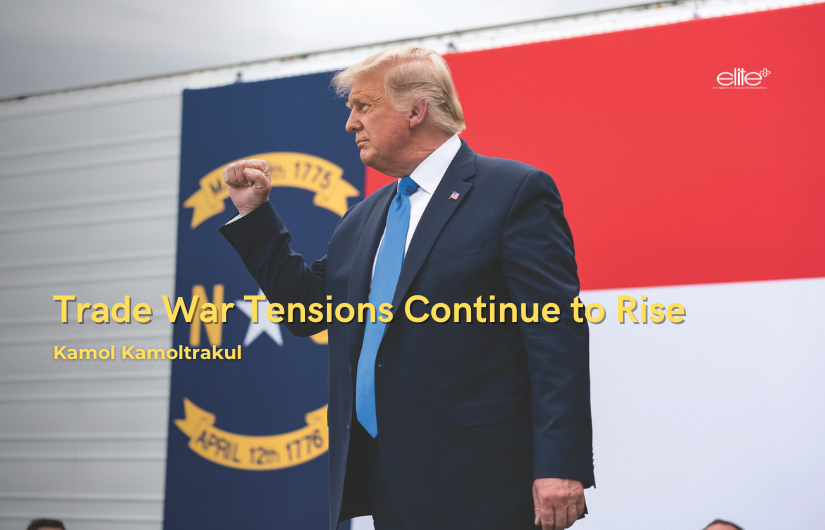
Since the Liberation Day Tariffs were announced by US President Donald Trump on 2 April 2025, the global trade war has continued to grow fiercer. China responded to Trump, saying it was ready to "fight to the end" in a trade war with the United States and then announced sweeping controls on critical rare earth minerals, prompting Trump to threaten 100% tariffs (130% in total) on imports from China in retaliation.
In the meantime, China holds the cards since rare earth minerals are crucial for the production of fighter jets, like the F-35 which is estimated to need more than 400kg (881.8lb) of rare earths for its stealth coatings, engines, radar and other components. In addition, rare earth minerals are essential for the production of a whole range of products, from solar panels and electric cars to military equipment.
China's rare earth exports also account for around 70% of the world's supply of metals used for magnets in electric vehicle motors, said Natasha Jha Bhaskar of the advisory firm Newland Global Group.
For decades, Beijing has worked hard to gain dominance in global rare earth processing capacity, said critical minerals researcher Marina Zhang of the University of Technology Sydney. China has nurtured a vast talent pool in the field while its research and development network is years ahead of its competitors, she added.
The trade tensions of the world’s two largest economies could reduce global economic output by 7% over the long term and cause Inflation in some countries and massive unemployment in others while the US and China continue to play the blame game.
WTO Director-General Ngozi Okonjo-Iweala said she urged the US and China to de-escalate trade tensions. She told Reuters in an interview that the global trade body was extremely concerned about the latest spike in US-China trade tensions and had spoken with officials from both countries to encourage more dialogue.
Meanwhile, US Treasury Secretary Scott Bessent accused China of seeking to harm the rest of the world by tightening restrictions on rare earths, which are critical to everything from smartphones to guided missiles.
Group of Seven (G7) Finance ministers also responded to the latest Chinese export controls and have agreed to coordinate a short-term response and diversify suppliers, the EU's Economy Commissioner Valdis Dombrovskis told reporters in Washington.
Speaking after the group met last week, Dombrovskis noted the vast majority of rare earth supplies come from China, meaning that diversification could take years. "We agreed, both bilaterally with the US and at the G7 level, to coordinate our approach," he said on the sidelines of the International Monetary Fund and World Bank's fall meetings. Countries would also exchange information on their contacts with Chinese counterparts as they work out short-term solutions,” he added.
German Finance Minister Lars Klingbeil told journalists he hopes that a Trump and Xi meeting can help to resolve much of the US-China trade conflict.
"We have made it clear within the G7 that we do not agree with China's approach," he added, referring to the group of Britain, Canada, France, Germany, Italy, Japan and the United States.
But tensions have continued to run high, even as Trump and Xi prepare to meet at the APEC summit in South Korea later this month.
China has further tightened export restrictions on rare earths ahead of talks between US President Trump and Chinese President Xi. China produces over 90% of the world's processed rare earths and rare earth magnets and has used export restrictions to throttle shipments. China already tightly controls its exports of rare earths, but on 9 October added five new elements, bringing total restrictions to 12.
China also limited the export of equipment and materials used to mine and refine rare earths. The restrictions force exporters to apply for licences. An earlier round of controls in April caused shortages of rare earth magnets, which led car plants around the world to pause operations.
Acknowledging fears of a repeat, China said it would facilitate licence approvals but intended to reject applications related to defence and would closely scrutinise those related to advanced semiconductors and certain kinds of artificial intelligence. Trump responded, saying Washington would impose export controls "on any and all critical software" from the first of November.
Meanwhile, China and the United States recently agreed to conduct another round of trade negotiations in the coming week as the world's two biggest economies seek to avoid another damaging tit-for-tat tariff battle.
While a deal could help de-risk the global economy, it could also reduce the comparative advantage Southeast Asia currently enjoys since Southeast Asia has fared better than initial expectations, successfully securing lower tariffs than the rates announced on 2 April.
However, some economists have said that as unpalatable as the Trump approach has been, Southeast Asian countries have made some wise strategic choices. These include negotiating bilaterally rather than acting as a bloc to resist political pressures at home.
The message Southeast Asian countries have sent is clear: The US matters to us and we are not a threat. We understand transactional relations, and we know how to cut a deal. This has helped build political goodwill in Washington.
For now, the multi-pronged approach of negotiating for relief and promising to buy more from America as well as lower trade barriers has borne fruit. Not only has Mr Trump cut tariffs on most Southeast Asian countries since Liberation Day, he has kept tariffs on semiconductors and electronics off the table – at least for now. The respite gives the region a comparative advantage over other countries, like China and India, while downsizing risks.
However, as US-China tariffs have escalated to triple-digit levels, some trade has halted as businesses wait for a resolution. The two countries have since lowered their respective levies, but their truce has remained shaky. In the latest indication of efforts to resolve their dispute, Chinese state media reported that Vice Premier He Lifeng and US Treasury Secretary Scott Bessent had "candid, in-depth and constructive exchanges" during a morning call, and that both sides agreed to hold a new round of trade talks as soon as possible.
US President Donald Trump has admitted his proposed 100% tariff on goods from China would not be sustainable, but blamed Beijing for the latest impasse in trade talks that began with Chinese authorities tightening control over rare-earth exports.
"They forced me to do this," Trump said in a recent interview with Fox Business Network.
"I think we're going to be fine with China, but we have to have a fair deal. It's got to be fair," Trump said on FBN's "Mornings with Maria".
Still, some experts have said that It would be foolish to conclude that the threats are now gone. Given that surprise is a major tool in how the Trump administration operates, the threat of new trade barriers remains a risk. Critical are potential tariffs and unsolved disputes on electronics, semiconductor and rare earth minerals exports that will affect the global supply chains.

Kamol Kamoltrakul 48 Posts
Visiting lecturer: Navy Academy Institution, NIDA, School of Governor, Ministry of Interior, Chulalongkorn University, Former Lecturer, ABAC Honorary Advisor Trade and Industry Committee Senate. Senior advisor, Standing Committee on Finance and Banking, The House of Representative. Former Advisor to the Minister of Interior Board Member of ThaiPBS Board Member Of Thai Consumer Council Columnist : Prachachart Business Weekly, Matichon Weekly, Khom Chad Luke Daily Former Program Director Asian Forum for Human Rights and Development ( FORUM-ASIA).




